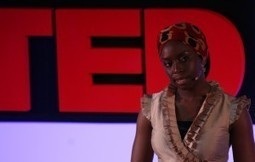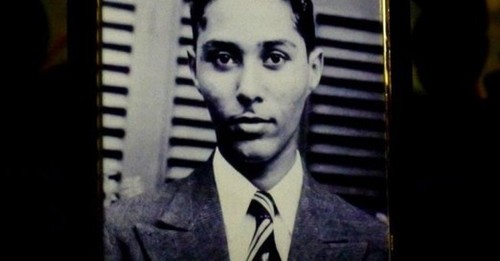“Silence from the Desert”
 Susan K Williams Smith
Susan K Williams Smith
Gordon G. Cosby Seasoned Voices Fellow, The SpiritHouse Project
The SpiritHouse Project, under the direction of Ruby Sales, has been investigating the deaths of black people at the hands of white police, vigilantes and security guards since 2007. The deaths have been shocking and reports of them have been scarce; Sales is determined to get the word out that young black people, male and female, are being brutalized with alarming frequency, with the murderers seldom being held accountable. A recent recurring phenomenon with these deaths is missing organs. The following story involves the case of a Black young man who, like Kendrick Johnson, (who was also black) was found murdered and organs missing. Sales is calling for a national movement to bring awareness to these murders and to stop them.
It has been six months – 74 days, to be precise – since Ryan Singleton’s body was found in a California desert, his organs missing, 74 days without having gotten a single bit of information about how he actually died.
Joggers found his body in a Death Valley desert near Baker, California, more than 70 days after he went missing. Though police say they searched for his body within a five-mile radius of a convenience store from which he disappeared, he was found a little over one mile from that same store. His body had no eyes, no heart, no liver, no lungs and no kidneys.
He disappeared in early July; his body was found September 21. Iris Flowers, his mother, speaks slowly and deliberately. The pain of having lost her son in such a horrific way comes through as she speaks. To date, she knows little about what really happened to her son. “When I have called, I get nothing,” she says, her voice heavy. “I have not gotten an autopsy report. I don’t know how long he was out in the desert.” “I don’t even have a death certificate yet.”
Ryan, 24, was a handsome, young African American man who had gone to California chasing his dream of becoming a model and film producer. His career had begun in New York and had taken off. He had appeared in major magazines, had appeared on Fashion Television, and was featured in a film that was seen by delegates at the United Nations. He moved to California where he met and mingled with people who saw his talent and opened even more doors for him. His star was rising; he was in the first chapter of what promised to be a life most could only dream of.
He was a good kid, folks would say. Not perfect, but a “good kid.”
He hadn’t been in California long before he decided he wanted to take a vacation. He rented a car and, en route to his vacation spot, ended up in the desert. His car, according to reports had broken down. White police officers found him walking in the desert, presumably trying to get help. They stopped when they saw him, did a check to make sure he had no record – which he didn’t – and then took him to a nearby convenience store so that he could call for help. He made a phone call to a friend to come pick him up …and then, suddenly, he was no longer in the store. Nobody saw him leave; nobody saw anybody pick him up – but it was clear that Ryan was gone.
Twenty-four hours later, law enforcement officers in Atlanta visited Mrs. Flowers at her home to tell her that Ryan was missing, after having been notified by California authorities.
Authorities told Flowers that perhaps coyotes had taken Ryan’s organs – they sometimes do that, police told her – but Ryan’s body was not mutilated. “Were his remains strewn all over the desert, near where he was found?” she asked them when they gave her the coyote story. No, as a matter of fact that had not been the case. Neither were any of his limbs missing. If coyotes had taken his organs, Flowers mused, they had taken them with surgical precision, leaving the rest of his body relatively intact.
Though Ryan had gone missing in July, his body was not badly decomposed, certainly not to the degree a body left in the hot desert sun might have been expected to. Authorities told Flowers the same; “his body is remarkably intact.”
Pictures of Ryan showed his hands curled, as though he were scratching or writhing in pain. He had perfect teeth, but pictures showed his five lower teeth missing. His mouth was open, lips still pretty much intact, but his mouth was open as though he were screaming. There was hole in the back of his head, low, near where the head meets the neck.
Flowers has been trying to get information, but nobody will tell her anything because Ryan’s case is a “death investigation,” she has been told. Police still have Ryan’s cell phones and his back pack. Flowers has called not only police, but the rental car company from which Ryan had gotten his car. Nobody will tell her anything. Ryan had two cell phones, Flowers says. One, they found in the back seat of the rental car, the other on his remains. She has not been able to get either one of them. “I call his cell phone every now and then, just to hear his voice,” Flowers says. It goes straight to voice mail…Flowers is understandably exasperated, annoyed. “Surely by now, the forensic records should have come back; surely somebody has to know something.”
Flowers holds the pain in so that she can move, breathe, talk. She recalls the last time she heard her son’s voice. “He had called me the day, the morning (I later learned) he disappeared, asking me to wire him some emergency money. I did …and then later I called him to make sure he had gotten it. He never answered the phone. He never picked up the money.” Twenty-four hours later, she got the news that he was missing.
In the early days of her son’s disappearance, and even after his lifeless body was found, Flowers called California authorities regularly, in spite of never getting any answers. After he was found and she could not get information, she called the FBI. They advised her to get an attorney. She has not as yet gotten one; attorneys cost money and her resources are limited.
Flowers recalls going to look at Ryan’s body after it was flown from California to Georgia for a funeral.
“Yes, I saw his body,” she says softly, heavily, in response to being asked if she saw him. “I went in to make sure the remains were my son, Ryan Singleton. It looked like road kill; they said it looked like that due to the autopsy. There was only a certain amount of torso left…there was not recognizable as a young man.” Her voice trembling some, she continued. “I had to make sure it was my son. I couldn’t do like Kendrick Johnson’s parents did. They had an autopsy and then he was buried and then they had him exhumed. That’s when they found his organs were missing. I learned from them. I couldn’t have gone through that. Before they buried him, we knew he had no organs.” Flowers said she also learned from a woman whose son had died in an equally horrible way years ago, when asked how she had endured seeing her son so mutilated and violated. “There were stronger women who went before me,” she said. “I thought of Emmett Till’s mother. I thought of how horrible that was …to show her son mutilated by hate. When I saw my son, I thought that what I felt was what Mrs. Till felt. I didn’t feel it was racial…but I don’t know what it was that killed him. I was thinking of her – looking at her healthy, beautiful child – and she showed her son to the world, to let the world know. I just wanted to go in and see …see if there was anything I recognized as part of my child.”
Ryan was unarmed. He had no record. He was young and vibrant, with his whole life ahead of him.
That life snuffed out, Flowers now just wants to know what happened…and get justice.
The silence from the desert is unacceptable, she says. Her son was a person, her baby. She cries slightly as she looks at a videotape showing Ryan shortly before his death …saying he was on his way and that he would be known all over the world in five years. He is confident and filled with hope; he is smiling and his eyes dance with a freshness that only comes with youth. Nothing was going to stop him; mom was not to worry.“That was my son,” Flowers says. “I miss him so much.”












